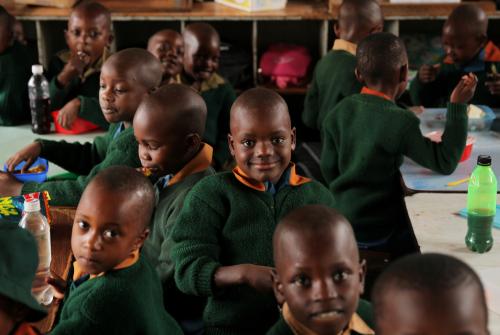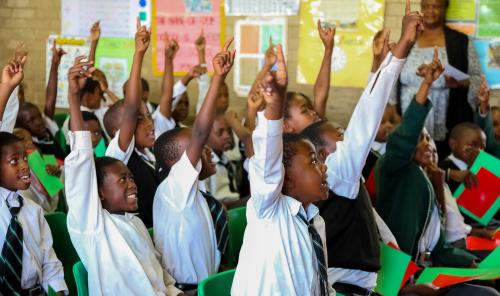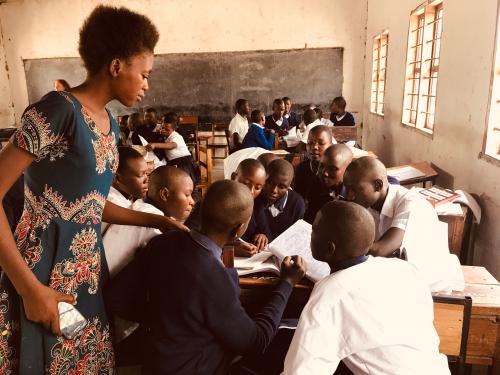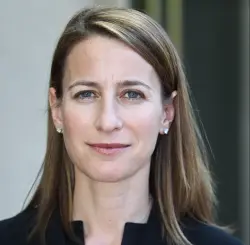Already more than a full year into the COVID-19 pandemic, it is sobering to reflect on the ongoing responses to the global pandemic, as well as future disruptions to children’s learning. The past year has really put to the test scaling principles and elucidated important lessons about catalyzing and sustaining transformative change in rapidly evolving contexts. Many of these principles—such as adaptive learning and systems thinking—are being unpacked and explored in Real-time Scaling Labs (RTSL), a collaboration with the Center for Universal Education at Brookings and local institutions and governments around the world to learn from, document, and support education initiatives in the process of scaling.
In Botswana, Young 1ove and CUE have been partnering on an RTSL convened by the Ministry of Basic Education (MoBE) focused on scaling Teaching at the Right Level (TaRL). The experience of the Botswana scaling lab over the past year offers several important insights and reflections that may be useful more broadly for those working to affect large-scale improvements in children’s learning, particularly in low-resource environments.
Insight 1: National scale can be pursued from the top down and bottom up
Expanding and deepening the impact of an education intervention requires nurturing partnerships from grassroots to national levels, with the understanding that buy-in and ownership for scale needs to involve players at all levels. Young 1ove has been collaborating closely with the MoBE at the central offices to support progress toward the ultimate goal of infusing TaRL into daily teaching practices in all primary school classrooms in Botswana. However, the past year has revealed significant potential for scaling via regional pathways, as many stakeholders at the highest levels of government have been consumed by national responses to COVID-19-related school closures and health crises.
For example, MoBE partners in the North East region took the lead in reinstating TaRL as schools reopened by mobilizing teachers and school-based youth volunteers to restart the program even amid shorter shift-system school days (where students attend classes in shift for half the day rather than for the full day). North East regional leaders also adapted TaRL delivery in response to COVID-19, including creating safety protocols that adhere to COVID-19 health protocols and taking full ownership of TaRL data collection and submission by utilizing existing school-based tablets. Student learning results from the region show a 79 percent decline in innumeracy, a near doubling of students who could perform all mathematical operations, and 57 percent of students learning a new operation, further evidencing how strong regional leadership can catalyze change that directly impacts children’s learning.
The success in North East illustrates how scale-up efforts can be made more powerful and sustainable when led by regional directors in the MoBE. The partnership between Young 1ove and the MoBE jointly supporting TaRL implementation prior to COVID-19 likely facilitated this approach, as regional stakeholders already had the tools and knowledge in place to take TaRL implementation and run with it.
Insight 2: Local champions leading the charge on the ground can be particularly important, even in a virtual world
Key to a regional scaling approach has been the role of a supportive and enthusiastic MOBE regional director. Young 1ove already knew that changemakers in bureaucracy are central to the scaling process, but this has proven especially true at the regional level, where an engaged director who champions TaRL can make significant progress in advancing and prioritizing TaRL within the region.
Further, Young 1ove has found that embedding a staff member in the regional government has been a particularly powerful scaling asset. Even as the world has shifted to virtual meetings and phone calls, having someone from Young 1ove physically present has helped the organization remain actively involved in and aware of conversations and schooling decisions. Moreover, the integration of this staff member in the regional government supports the shift to seeing TaRL as a sustainable government program led by strong regional champions. In regions where they do not have a staff member embedded, Young 1ove has found lapsed communication over the past year and faced more challenges “restarting” TaRL after COVID-19 school closures.
Insight 3: Short-term shocks can lead to long-term learnings
The COVID-19 pandemic has demonstrated the absolute need to be flexible, adaptive, and responsive to changes in the education landscape in real-time. This experience has also underscored the importance of evidence and learning alongside adaptation and rapid response.
The TaRL implementation cycle in Botswana is typically designed to last 30 days. However, as a result of COVID-19, the implementation period was cut by over half during the first term of the 2020 school year with an average implementation period of eight days across schools. To understand the impact of this significant shift, Young 1ove collected data on student learning outcomes and discovered that despite the reduced intervention time, students demonstrated strong learning gains—almost equal to previous 30-day cycles as shown in Figure 1.

This finding not only suggests that even relatively short periods of high-quality implementation can improve student learning, but also underscores the importance of tracking results—even during unexpected adaptations. In this case, tight feedback loops provided evidence of possibilities for refining the TaRL model beyond this pandemic in ways that maximize effectiveness and scalability.
Learnings for beyond the pandemic
The RTSL experience adapting and scaling TaRL in Botswana in the midst of a global pandemic offers key insights that are applicable well beyond this immediate pandemic:
- An orientation toward rapid learning and evidence generation is key to maintain alongside innovation and adaptation, especially in a crisis like COVID-19. Balancing the need for adjustments and iteration with the collection and use of timely data and learning can help respond to disruptions of scaling efforts.
- Focusing on regional/grassroots partnerships for scaling can be particularly effective as those closest to the problems are most often best placed—and have the most incentive—to respond. Even where the ultimate goal is national scaling or ownership of the initiative by the central government, a more decentralized approach to scaling can be an effective way to make progress toward this goal, especially when national-level actors are consumed by crisis-response.
- And, finally, even in a more virtual world, regional and local champions present on the ground are important for maintaining scaling momentum and expanding impact.
Photo credit: Thimonyo Karunga, Northeast Sub-Regional Coordinator at Young 1ove
The Brookings Institution is committed to quality, independence, and impact.
We are supported by a diverse array of funders. In line with our values and policies, each Brookings publication represents the sole views of its author(s).









Commentary
A year later: Reflections on learning, adapting, and scaling education interventions during COVID-19
April 2, 2021